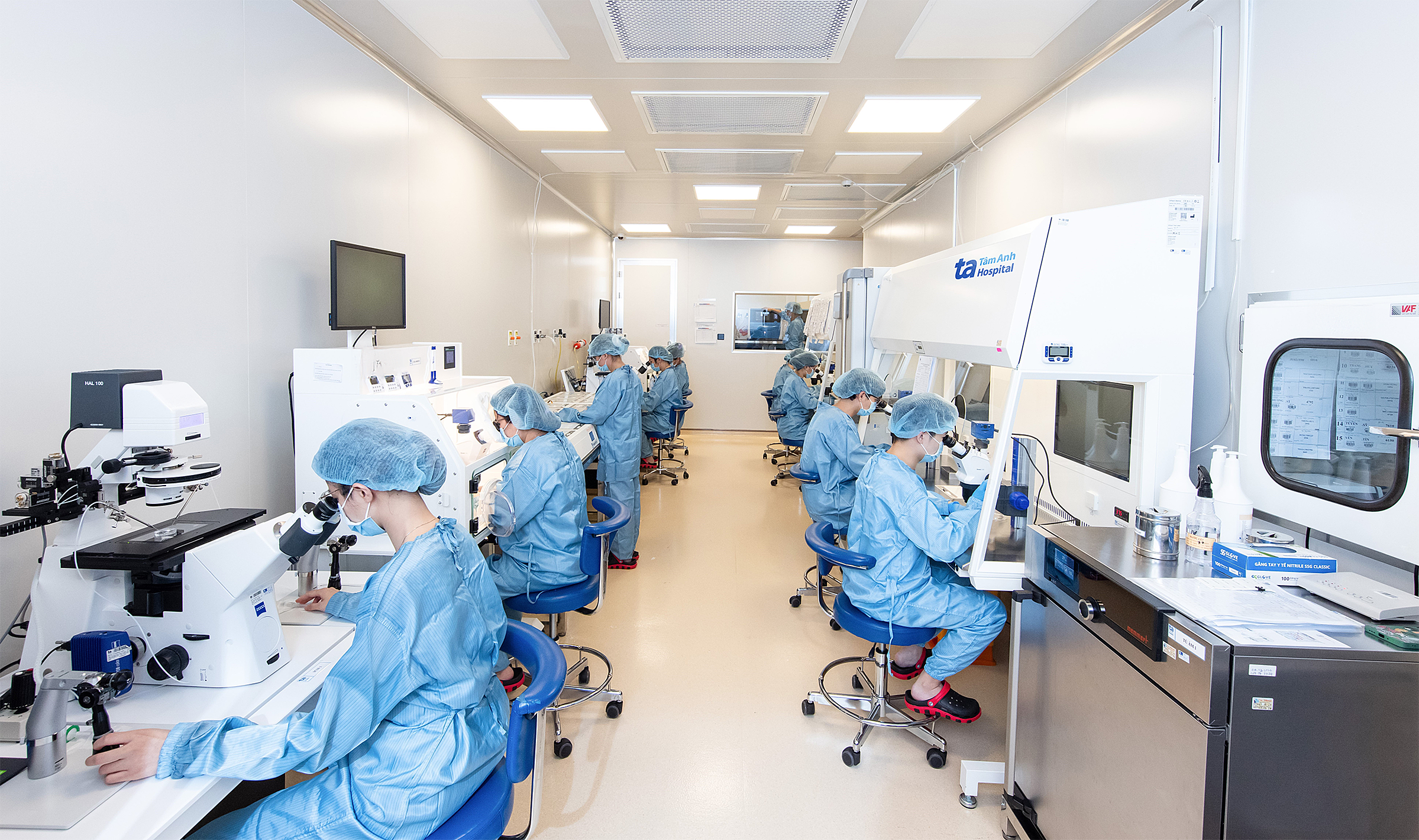Between 2016 and 2018, Tuyet suffered three consecutive miscarriages between 5 and 8 weeks of gestation. During her 4th pregnancy, multiple birth defects were diagnosed, leading to the termination of the pregnancy. Genetic analysis of both Tuyet and her husband revealed no apparent cause for the abnormalities. Four subsequent intrauterine insemination (IUI) attempts were also unsuccessful.
Dr. Le Xuan Nguyen from the Assisted Reproduction Center at Tam Anh General Hospital in Ho Chi Minh City (IVF Tam Anh TP HCM) explained that recurrent miscarriages and birth defects like Tuyet's can stem from various factors, including chromosomal abnormalities in either or both parents, advanced maternal age, abnormal egg quality, or mutations during cell division. Genetic testing on Tuyet and her husband didn't reveal any major chromosomal abnormalities, leading to a diagnosis of secondary infertility (infertility after a previous pregnancy or childbirth) of unknown cause.
The couple opted for in vitro fertilization (IVF). However, a continuous monitoring camera system coupled with artificial intelligence (AI) software within the embryo culture system revealed that most of the embryos showed abnormal division and stopped developing early. Only 5 embryos reached the day-5 stage.
 |
The ISO 5 standard embryo culture room system at IVF Tam Anh. Photo: Nguyen Thang |
The ISO 5 standard embryo culture room system at IVF Tam Anh. Photo: Nguyen Thang
Three of these embryos underwent preimplantation genetic testing and were found to be normal. A hysteroscopy revealed abnormalities that could reduce the chances of embryo implantation, but Tuyet declined treatment due to financial constraints.
Dr. Nguyen prepared Tuyet's uterine lining for embryo transfer, placing one embryo in an optimal position. However, the embryo migrated and implanted in her right fallopian tube, resulting in an ectopic pregnancy. The embryo was removed, and the right fallopian tube was also removed to prevent recurrence. A subsequent hysteroscopy revealed inflammation requiring medication.
For the next 5 months, attempts to prepare Tuyet's uterine lining for another embryo transfer were unsuccessful due to physiological changes. Dr. Nguyen continuously monitored the changes in her menstrual cycles via ultrasound and adjusted the treatment accordingly. Finally, in 4/2025, when the uterine lining was optimal, Dr. Nguyen transferred an embryo, resulting in a successful pregnancy. Tuyet is currently 15 weeks pregnant, and ultrasound morphology scans and NPIT tests show no signs of birth defects.
According to Dr. Nguyen, IVF Tam Anh frequently treats couples with unexplained secondary infertility, recurrent miscarriages, and a history of pregnancies or children with birth defects. Advanced imaging and hysteroscopy help identify and treat any abnormalities. Embryo culture technology and preimplantation genetic testing allow for the selection and transfer of healthy embryos, increasing success rates and reducing the risk of birth defects and obstetric complications like miscarriage and premature birth.
Dr. Nguyen recommends that couples seek medical attention if they haven't conceived after a year of trying. In cases of recurrent miscarriages or a history of pregnancies or children with birth defects, IVF with preimplantation genetic testing is recommended to increase the chances of having a healthy baby.
Hoai Thuong
*The patient's name has been changed.












